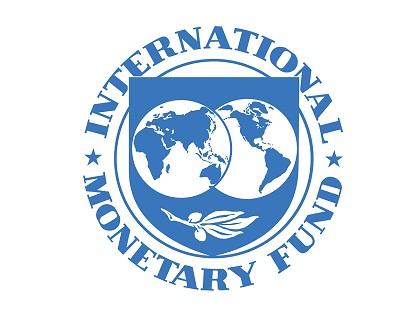KABUL (Pajhwok): An International Monetary Fund (IMF) team has held conducted virtual discussions with Afghan officials on the first Extended Credit Facility (ECF) review.
A statement from IMF said on Friday the discussions were held in March-April. At the conclusion of talks, Azim Sadikov, the IMF team leader, said a staff-level agreement was reached between the two sides.
In the statement, Sadikov said: “The IMF team has reached a staff-level agreement with the Afghan authorities on the completion of the first review under the ECF arrangement. The agreement is subject to approval by the IMF Executive Board.”
The board is expected to consider the first review in early June. The review’s completion will make about $147 million available to Afghanistan to cover external and fiscal financing needs.
Following is the statement from the IMF team leader:
“The three-and-half-year ECF arrangement approved in November 2020 is supporting Afghanistan’s recovery from the Covid-19 pandemic, buttressing reforms to tackle structural weaknesses in the economy, and providing financing to enable priority spending. The ECF was also instrumental in catalyzing donor financing at the Geneva donor conference in support of Afghanistan’s reform and development.
“Afghanistan continues to face formidable challenges, with the precarious security situation hurting confidence and growth. The peace negotiations hold the promise of a resolution of the armed conflict paving the way for lasting economic development and prosperity. In the meantime, reform-oriented policies supported by donor grants and capacity development remain critical to lay the foundation for inclusive growth and poverty reduction and limit economic scarring from the pandemic.
“Afghanistan has been hit hard by the Covid-19 crisis. To mitigate its impact on the Afghan people, especially the vulnerable, the authorities raised spending for health and social needs supported by donor and IMF financing. The authorities’ swift response and the favorable weather, which boosted the agricultural production by more than 5 percent, helped contain the economic contraction in 2020 to 2 percent. Revenue shortfalls due to the slowdown and pandemic spending led to a widening of the fiscal deficit to 2.3 percent of GDP in 2020.
“High-frequency data are pointing to a recovery, with working hours, social mobility, and cross-border traffic largely back to pre-crisis levels. Growth is projected to rebound to 2.7 percent in 2021 but remains subject to considerable downside risks from the evolution of the pandemic, insecurity, and the incipient drought due to a disappointing winter precipitation.
“The team discussed with the Afghan authorities the implementation of economic reforms, commending them for prudent macroeconomic management under challenging circumstances as well as progress towards bolstering financial sector resilience and enhancing the transparency of public spending.
“To help sustain the recovery and limit scarring, the authorities intend to target a 2.5 percent of GDP overall fiscal deficit this year. Hitting the 2021 budget’s ambitious revenue target became challenging after a disappointing first quarter outcome. The authorities have therefore realigned their 2021 spending plans with prudent revenue estimates by putting on hold slower-performing projects while protecting health and other social priority outlays. The authorities’ task of mobilizing domestic revenue hinges critically on restoring tax compliance to its pre-pandemic level and accelerating preparations for the VAT introduction later this year.
“Monetary policy remains geared to low and stable inflation, with the authorities committed to letting the Afghani move with market trends to preserve competitiveness. The pandemic has heightened strains in the banking sector, leading to a worsening of asset quality and lower bank profits. In response, Da Afghanistan Bank has appropriately intensified its monitoring for early detection of stress, focusing on weak banks which boosted their capital and loan-loss reserves.
“Despite delays inflicted by the pandemic, the authorities remain committed to structural reforms. They intend to reinvigorate the reform of state-owned banks with support of the World Bank, strengthen the institutional framework for managing fiscal risks, conduct the audit of COVID-related spending in 2020, and complete systematic digitalization of asset declarations. Going forward, given fragility and capacity constraints, the authorities should further prioritize their reform agenda to ensure steady implementation.
“The IMF team would like to thank the Afghan authorities for the constructive discussions.”
pr/mud
Visits: 115









GET IN TOUCH
NEWSLETTER
SUGGEST A STORY
PAJHWOK MOBILE APP